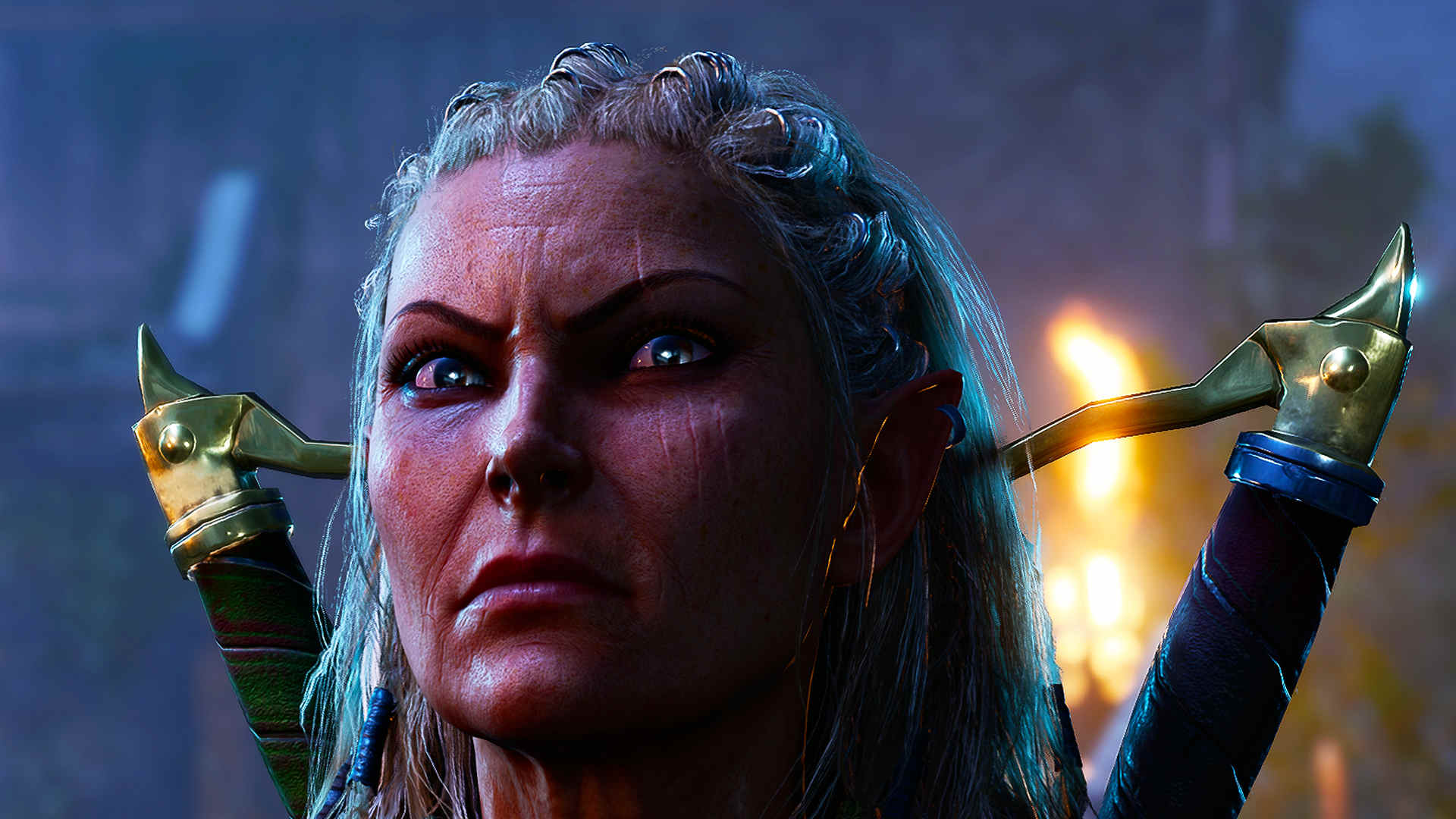
Some of Baldur's Gate 3's trickier fights might be so difficult because the NPC allies fighting alongside you have been bugged since launch, with one analyst suggesting that Larian deliberately "neutered" almost an entire faction.
If you, like me, found that Baldur's Gate 3 Act 2 is a much less pleasant place to be than Act 1, the chances are high that you, like me, struggled with some of its battles. On my first playthrough, there were plenty of difficult encounters, but one of the hardest was the assault on Moonrise Tower. With Jaheira and the Harpers by my side, I thought I stood a pretty good chance, but in the end it took multiple attempts and some cheesy strategy to make it through.
As it turns out, that's because any fights where you've got the Harpers by your side aren't exactly fair. As pointed out in a lengthy Reddit post, user NCBlizzard alleges that 22 out of the 25 Harpers that appear in Act 2 are affected by a peculiar piece of code that dramatically hinders their ability to help out in a fight.
That piece of code is Extra_Attack_Blocked. Traditionally, it appears when a character is affected by a condition that limits the number of actions they're able to take in a single turn - if a character that can cast multiple attacks is hit by the Slow spell, for instance, they'll gain an 'Extra_Attack_Blocked' tag in the game's backend.
NCBlizzard points out, however, that Larian has actively applied that block to "almost every single Harper and Fist in Act 2." 22 Harpers and six members of the Flaming Fist have had their extra attacks permanently shut off. This would be a pretty major hindrance even for a well-rounded faction, but 18 of the 25 Harpers you meet throughout the game's second act are martial classes. That means that for the Fighters and Rangers that make up much of the Harper ranks, NCBlizzard argues that the Extra Attack ability - which they should have access to at their levels - is "quite literally the most important power spike available." But they're hard-blocked from using the ability.
In many cases, the Extra Attack Block is added automatically in the code by certain other conditions. For the Harpers, however, Larian deliberately added the code tag to most of the characters, leaving it off just three of the faction's Act 2 NPCs. Maybe that was intentional, but NCBlizzard argues that it doesn't seem to be; this is the only time the tag is used like this, and Act 3 Harpers don't have it; the tag's usage is inconsistent across different classes and is also applied to several NPCs who don't have access to multiple attacks; 'backup' Harpers who are intended to fill in for any units killed before they can officially show up don't have the tag at all; and perhaps most importantly, "the Harpers are already much weaker than their Absolutist counterparts, with lower stats, lower health pools, [and] lower manpower."
So a faction that's already on the back foot in Act 2 is hindered further by a code tag that removes the most powerful ability that many of them should have access to at their levels. But it gets worse - further down the post, NCBlizzard notes that certain Harpers are missing the resources they need to pull off other attacks, so one Harper that should be able to use Disarming Attack can't do so. Other Harpers are either poorly kitted out, boasting Fighter stats despite their Ranger weapons, or poorly equipped, like a Wizard who's rocking Ranger weapons and one solitary spell.
Sign up to the GamesRadar+ Newsletter
Weekly digests, tales from the communities you love, and more
The Harpers' lack of utility isn't exactly a disaster, as there are plenty of ways to get around their hamstrung offensive capabilities, but they remain a peculiar dour note in the already dour Act 2. And, as NCBlizzard points out, they're pretty crucial to the wider D&D lore. That's partly why, with Baldur's Gate 3 Patch 7 on its way in September, they're shining a spotlight on the Harpers in the hope that they'll get fixed soon.

I'm GamesRadar's news editor, working with the team to deliver breaking news from across the industry. I started my journalistic career while getting my degree in English Literature at the University of Warwick, where I also worked as Games Editor on the student newspaper, The Boar. Since then, I've run the news sections at PCGamesN and Kotaku UK, and also regularly contributed to PC Gamer. As you might be able to tell, PC is my platform of choice, so you can regularly find me playing League of Legends or Steam's latest indie hit.


